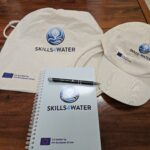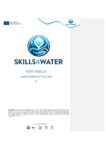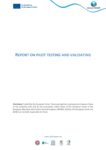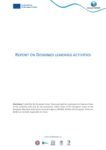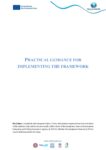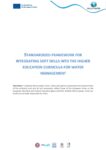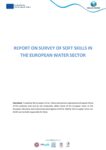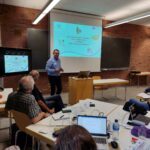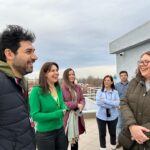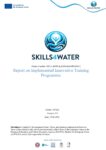written by: Tamara Rađenović
The water industry is currently facing a rising gap between labor-market demand and the availability of sufficiently trained and qualified professionals, leading to difficulties in retaining employees and finding skilled workers. Namely, the water industry requires a highly skilled workforce capable of adapting to the evolving market and societal needs, including appropriate training in soft skills which are essential assets for water professionals.
To tackle the faced challenges, the European Commission has set an ambitious objective of upskilling the European workforce to address skill and occupation shortages, prompting educational projects like SKILLS4Water. The SKILLS4Water consortium recognized the mismatches that exist between the water market demand and the offerings of the universities and built upon them by developing and offering tailor-made innovative learning and teaching practices to be incorporated into the higher education water management curricula. To contribute to building a sustainable and resilient water future and providing the EU with a skilled workforce the SKILLS4Water consortium started its journey a year ago.
The WP2 aimed to bridge the gap between the water industry needs and academic offerings, ultimately leading to the upscaled competencies and innovativeness of the workforce in the water sector. The following deliverables were produced to accomplish the specific objectives of the WP2:
D2.1. Evaluation report of soft skills in the European water sector
D2.2. Standardized framework for integrating soft skills into the higher education curricula for water management
D2.3. Practical guidance for implementing the framework
The members of the SKILLS4Water project team were actively involved in gathering data from various industry stakeholders. The starting point was the questionnaire which was created and distributed to the stakeholders through the online platform. After the data collection in the first phase, the focus groups were organized to gain complete insight into the necessary soft skills in the water sector. All gathered data were thoroughly analysed, and the findings were compiled into the comprehensive evaluation report (D2.1). The insights from the respondents were crucial in prioritizing which skills are needed in the European water sector to be included in curricula and providing more skills-related training. Building upon the findings in this report the consortium also produced the Standardized framework for integrating soft skills into the higher education curricula for water management (D2.2). This aimed to provide a strong educational base for the future development of water-related soft skills and competencies. Finally, this framework paved the way for practical guidance on integrating soft skills into lectures, seminars, laboratory activities, and fieldwork taking into account various personal, interpersonal, and situational soft skills (D2.3). These guidelines can be integrated into the already existing curricula or can be used for the development of new curricula.
As we move forward, the results of the WP2 serve as a basis for designing the learning activities to be included in classes, as well as innovative training programmes that will pay the way for a more innovative, competent, and skilled professionals in the water industry. Emphasizing the development and integration of soft skills alongside technical competencies is important for addressing the multifaceted challenges facing the water sector and fostering a resilient and innovative workforce.



